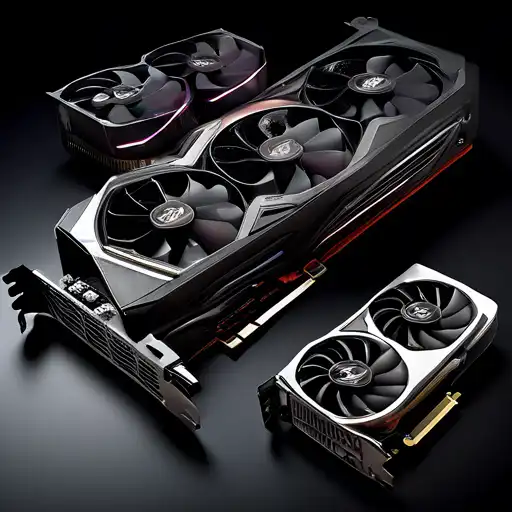Introduction to Choosing the Right GPU for Gaming
Choosing the right GPU (Graphics Processing Unit) is crucial for an optimal gaming experience. The GPU is the heart of your gaming PC, rendering images, animations, and video for the computer’s screen. With the vast array of options available, selecting the perfect GPU can seem daunting. This guide will walk you through the key factors to consider when making your choice.
Understanding GPU Specifications
Before diving into the market, it's essential to understand what GPU specifications mean for your gaming experience. Key specifications include:
- Core Clock Speed: Measured in MHz, this indicates how fast the GPU's core operates.
- Memory: VRAM (Video Random Access Memory) is crucial for higher resolutions and textures.
- Memory Bandwidth: This affects how quickly the GPU can access the VRAM.
- CUDA Cores/Stream Processors: More cores mean better performance in processing graphics.
Matching GPU to Your Gaming Needs
Not all games require the same level of GPU performance. Consider the following:
- Casual Gaming: Older or less demanding games can run smoothly on mid-range GPUs.
- High-End Gaming: For the latest AAA titles at ultra settings, a high-end GPU is necessary.
- VR Gaming: Virtual reality games require GPUs with high performance and specific VR readiness.
Budget Considerations
Your budget plays a significant role in the GPU you can afford. Prices can range from under $200 to over $1000. It's important to balance performance needs with what you're willing to spend. Remember, the most expensive GPU isn't always the best choice for your specific needs.
Future-Proofing Your Purchase
Technology evolves rapidly, and today's top-tier GPU may not meet tomorrow's standards. Consider:
- Upgradability: Some GPUs offer better longevity through driver updates and architecture.
- Power Consumption: Higher performance GPUs consume more power, which could affect future electricity costs.
Conclusion
Selecting the right GPU for gaming involves understanding your gaming needs, budget, and the specifications that matter most. By considering these factors, you can make an informed decision that enhances your gaming experience without overspending. For more insights on building the perfect gaming setup, check out our guide on gaming PC builds.
